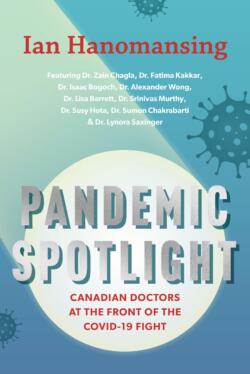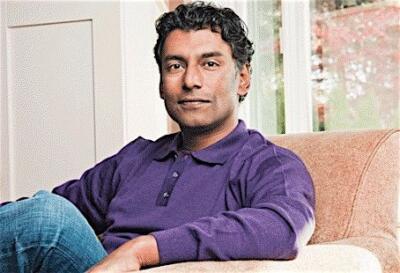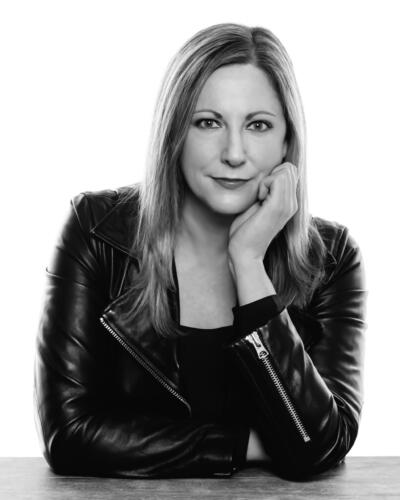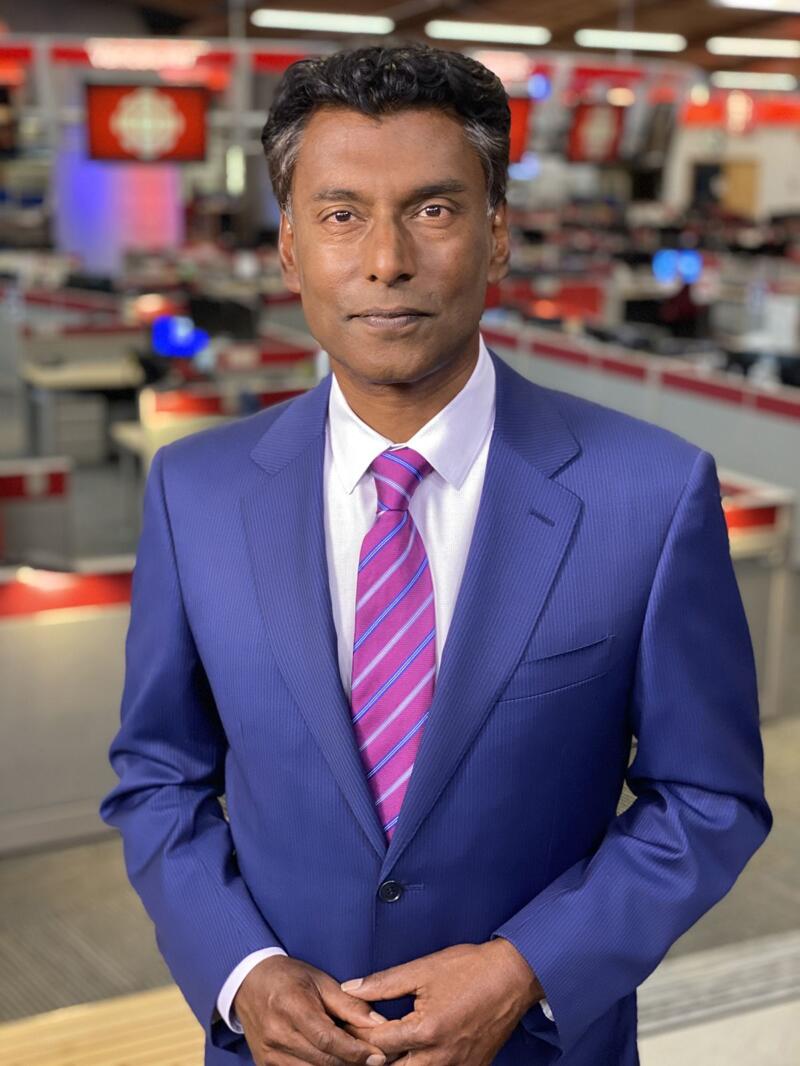1285 From anonymity to spotlight
Pandemic Spotlight: Canadian Doctors at the Front of the Covid-19 Fight
by Ian Hanomansing
Madeira Park: Douglas and McIntyre, 2021
$22.95 / 9781771622929
Reviewed by Phyllis Reeve
*
 For nearly two years we have existed in a time warp. When I see a reference to something which happened in April, and now it is October, I think we have come a short way in six months, and then I realise the event occurred in April 2020, which, incredibly, is a year plus six months in the past. Things change quickly, but drag on forever. In the future we will try to sort out What happened When, and this book, personal and unassuming though it is, should be one of the resources we turn to for help.
For nearly two years we have existed in a time warp. When I see a reference to something which happened in April, and now it is October, I think we have come a short way in six months, and then I realise the event occurred in April 2020, which, incredibly, is a year plus six months in the past. Things change quickly, but drag on forever. In the future we will try to sort out What happened When, and this book, personal and unassuming though it is, should be one of the resources we turn to for help.
Ian Hanomansing, as an anchor of CBC TV’s The National, and sometimes host of Cross country Checkup on CBC Radio, routinely deals with breaking news and follow-up news, but seldom with a story that goes on and on and on … The first news “about a pneumonia of unknown origin in Wuhan, China” broke on Dec 30, 2019. On January 24, 2020, Hanomansing began his series of interviews with experts in infectious diseases, all of them, including the interviewer, trying to make sense of what was happening. The book is like a panel discussion with the author as facilitator.

His panelists are: Dr. Lisa Barrett of Halifax; Dr Isaac I. Bogoch of Toronto; Dr. Zain Chagla of Hamilton; Dr. Sumon Chakrabarti of Toronto; Dr. Susy Hota of Toronto; Dr. Fatima Kakkar of the Montreal; Dr. Srinivas Murthy of Vancouver; Dr. Lynora Saxinger of Edmonton; and Dr. Alexander Wong of Saskatoon. All are infectious disease specialists, used to listening and explaining, used to basing their answers and explanations on the best available information. Of these, Murthy is the only one the author has actually met in person.


B.C’s Dr. Bonnie Henry is not there, although she does get a mention. After all, she really had her own show for a lot of months.
Having gathered his panel, the author invites them to introduce themselves, their backgrounds and passions, the paths to their career choices, how they felt about being catapulted from anonymity to spotlight, and how they will feel about slipping back into anonymity. In the context of the book he can ask them the questions for which there is never time on live TV. He can satisfy his and our curiosity about their Zoom backdrops: that large picture behind Dr. Barrett and Dr. Chakrabarti’s “carefully curated plant between two guitar cases.” Most of these personal interviews took place during the Pandemic’s 3rd wave in the spring of 2021, when the vaccines began to open up a possibility of coming normality.

In response to questioning, all of the nine confessed to being high-achievers at an early age. Involvement with other great medical challenges of our time — Hepatitis C, HIV/AIDS, Ebola, Zika, SARS — prepared them for Covid-19. All were born in Canada, children “of a wave of immigrants whose families came to this country because of science.” Hanomansing himself was born in Trinidad, grew up in Sackville, N.B., and now lives in Vancouver. Now they are actors in this unfolding drama which begins with The National’s first interview with Dr. Bogoch on January 24, 2020. The next day Dr. Hota is already distinguishing credible from non-credible sources and warning that “Fear is never helpful.” Within two weeks Bogoch and his colleagues post an article online.
From that point, it is helpful to have at hand the Timeline so thoughtfully provided, which puts everything, including our own lives, in context from Dec 30, 2019 when the ProMed alert sent to doctors about a pneumonia of unknown origin in Wuhan, China, to July 30, 2021 when 80 per cent of adult Canadians had received at least one vaccination and most universities, schools and workplaces were planning to re-open fully by fall. There is also a Table of Select Abbreviations for the ready identification of institutions and syndromes. An Index enhances the book’s use as a reference. Don’t let the word “reference” deter you; the author is a communicator and knows how to tell a story.
Hanomansing asked where they were and what were they doing as the first notifications arrived, and as they watched the inexorable progress of the virus from China to Italy to Iran and to a Canadian who had visited Iran. A sense of invincibility prevailed until March Break 2020. Then a death in Canada was confirmed to be due to Covid-19. The World Health Organisation declared a global pandemic. The NBA suspended its season literally in the midst of a game.


Dr. Barrett had been attending conferences, not about Covid, in Montreal & Toronto. On her return to Halifax, she “walked into our boardroom that we were going to use for the next nine months as a situation room, and it feels like we never left it.” A huge amount of anxiety swept the medical world, leading briefly to a fear of being in a room with patients, until anxiety and fear were replaced by a sense of duty. They knew what they had to do, and they went ahead and did it.
The author realised that medical ethics and the specific dedication that drives medical professionals is more than a myth. Some of his doctors attribute these qualities to the examples of others. As a young doc working in Liberia during the Ebola outbreak, Murthy asked the Liberian doctors why they kept volunteering. They said, “when you’re called on by your society and you have a skill set, it’s your duty to offer that skill, and we are the warriors of our people. And this is our time to fight.”
That term “skill set” turned up in another book I read recently: The Accidental Plague Diaries: A COVID 19 Experience by Andrew Duxbury MD. Andy is either my first cousin thrice removed or my second cousin twice removed. He is a physician in Birmingham. Alabama, specialising in geriatrics, caring for a vulnerable population, and — no matter what his specialty — possessing a “skill set which must be ready for use when needed.” In his series of journal entries, Dr. Duxbury documents the intrusion of the pandemic into daily life, like the progress of the shrouded figure in Edgar Allan Poe’s Masque of the Red Death, and concludes each entry and the book with a variation of the mantra “Wash your hands. Wear your mask. Get your vaccine.”

During this strange time, using the skill set includes being on call by the media: to inform, to combat the threat of misinformation, to speak up about the data and to reassure, while being willing to admit one doesn’t know or might be wrong, to think while on air, to deal with unexpected breaking news or other interruptions. And the physicians on Hanomansing’s panel have to curb their own emotions (“I don’t think it resonates with people to see a pissed-off doctor,” one comments). They learn to make use of both mainstream and social media.
Infectious disease specialists are “skilled at balancing the scientific evidence and the art of human nature and communication,” but now they must learn to deal with non-fact-based messages, and get used to Twitter as a necessary evil.

Dr. Saxinger talks about the change in the influence of the mainstream media:
It used to be that people of various backgrounds would watch the same news and interpret it and discuss it. They were actually starting from that place in the middle, where now everyone is getting their media pre-filtered through some pretty extreme lenses sometimes. So they’re not starting from that common place, and you can really see it and feel it. It’s a really big threat, not just for public health — for society at large.
This is not a conversation Hanomansing and his doctors could be having on The National. And there ‘s more — about criticism directed at undermining expertise, about the good and bad of public recognition and feedback, about the special challenges of the media in Quebec where differences are more than merely linguistic. They explore some unintended consequences, for instance the pandemic-mandated closure of strip bars forcing women into the sex trade.

The feedback in mostly positive, but there are scary messages and even death threats. Once, Bogoch evacuates his family to a hotel. Wong is bemused to be called a Nazi: “Has it occurred to you that I’m not a white person? Am I even allowed to be a Nazi?” He tweets, “Have you seen me? C’mon, I’m a bald Asian midget, man.” Funny? Not really.
As his panelists look forward to returning to anonymity, Hanomansing reflects on the relationships forged (“a strange intimacy … we spent so much time together but never met in person”) and the role of journalists and the media (“somehow the competition did not turn into ‘gotcha’ journalism, juicy soundbites or provocative headlines. The coverage was extensive, careful and as complete as we could make it. And the infectious disease doctors helped us achieve that.”)

But as I write this review, the need for pandemic coverage is not quite over and Ian Hanomansing has not signed off from this panel discussion. The other day I turned on The National, and found him talking with Dr Sumon Chakrabarti against the backdrop of “Chakrabarti’s carefully curated guitar cases.” And last night Dr. Isaac Bogoch reassured me about the mix-and-match of different brands of vaccines.
Recognising that “the doctors volunteered their time — a lot of time,” the author has volunteered his time in writing the book. All royalties are go to the University of British Columbia’s Centre for Health Education Scholarship. This is a book about how skilled and caring people in two professions, medicine and journalism, are helping us through our time warp.
Meanwhile, remember Cousin Andy’s mantra: “Wash your hands. Wear your mask. Get your vaccine.”

*

Phyllis Parham Reeve writes about local and personal history in her three solo books and in contributions to journals and multi-author publications. She is a contributing editor of the Dorchester Review and her writing appears occasionally in Amphora, the journal of the Alcuin Society. She co-founded the bookstore at Page’s Resort & Marina on Gabriola Island. More details than necessary may be found on her website. Editor’s note: Phyllis Reeve’s recent reviews include books by PJ Patten, Marion McKinnon Crook, Daphne Marlatt, Ayesha Chaudhry, Sylvia Olsen, P.K. Page, Peggy Lynn Kelly & Carole Gerson, Iain Lawrence, and Michael Kluckner.
*
The Ormsby Review. More Books. More Reviews. More Often.
Publisher and Editor: Richard Mackie
The Ormsby Review is a journal service for in-depth coverage of BC books and authors in all fields and genres. The Advisory Board consists of Jean Barman, Wade Davis, Robin Fisher, Cole Harris, Hugh Johnston, Kathy Mezei, Patricia Roy, Maria Tippett, and Graeme Wynn. Scholarly Patron: SFU Graduate Liberal Studies. Honorary Patron: Yosef Wosk. Provincial Government Patron since September 2018: Creative BC
“Only connect.” – E.M. Forster
2 comments on “1285 From anonymity to spotlight”